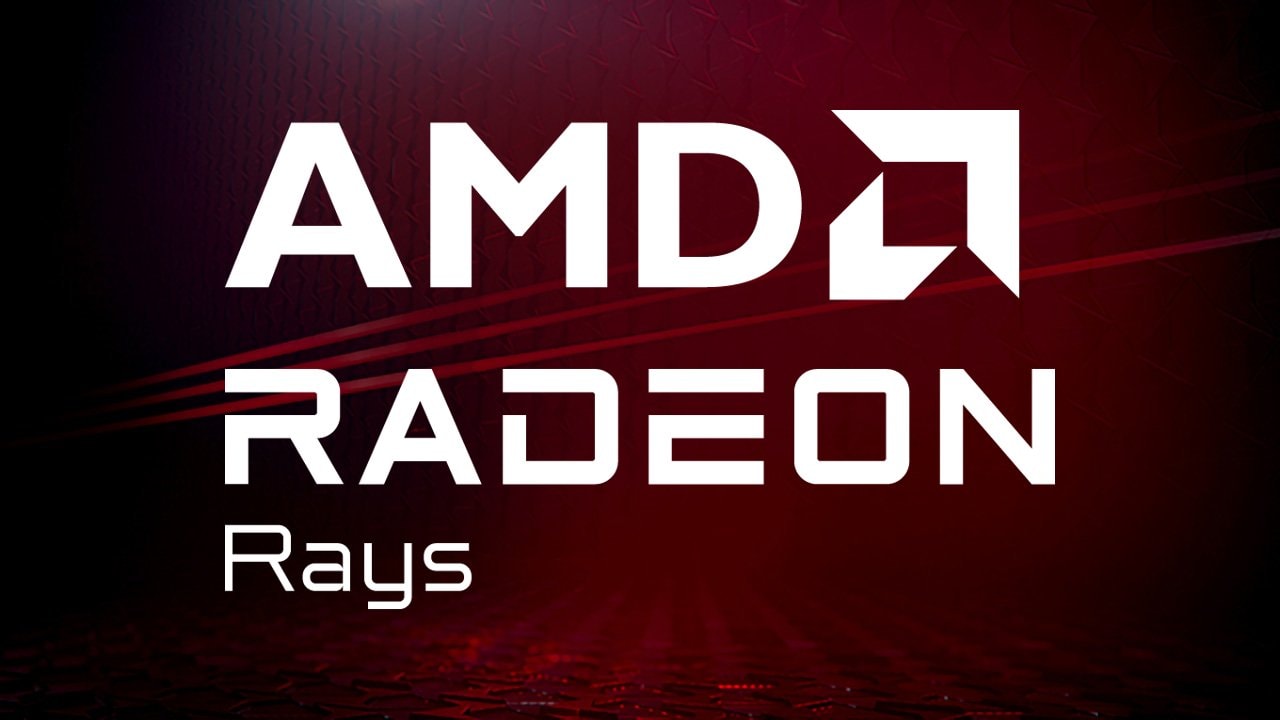
Radeon™ Rays
The lightweight accelerated ray intersection library for DirectX®12 and Vulkan®.
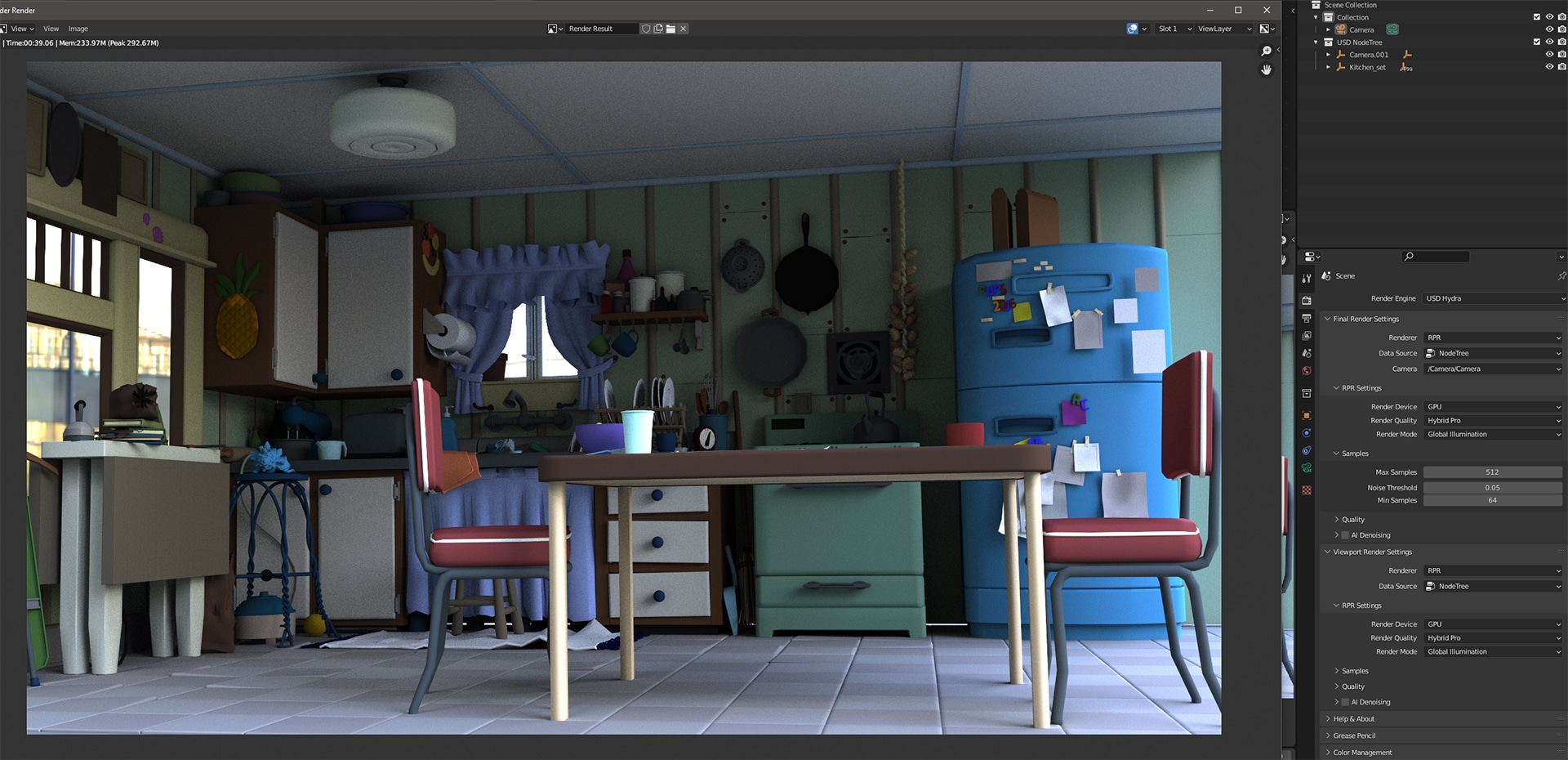
Today we are launching the next step for AMD Radeon™ ProRender, which will yield new collaborative workflows and introduce more users to the world of creating 3D content. That vision is a renewed focus on supporting rendering using the two open-source file formats, USD and MaterialX. In this post we’re showing some new features that enable Radeon ProRender with these formats. These recent developments include the 1.0 version of our Blender® USD plug-in, a new plug-in to enable Radeon ProRender in Maya® via USD, and a free MaterialX online library!
Collaborating online using a 3D “metaverse” has been the buzzword of the day. We are still in the infancy of this idea, but the foundational blocks are being laid. One of those blocks is USD™, or Universal Scene Description. Started at Pixar®, this 3D format for sharing, compositing, and collaborating on 3D data has gained support across many 3D content creation applications. Of course, one needs to render 3D data. We have supported USD with Radeon ProRender via the USD Hydra™ render delegate for years now, and we will continue to do so. Furthermore, our focus over the next year will be to support content creation applications via first-class support for USD in Radeon ProRender. We think this will bring further benefits to users beyond just being a renderer!
A note to current Maya and Blender plug-in users: while our focus going forward is on the USD-based plug-ins, we will periodically post bug fixes of the “classic” plug-ins or recompile them for a new version of the Radeon™ ProRender SDK. However, we encourage users to try the new USD-based plug-in workflows for the benefits of collaboration.
Today we are making our 1.0 version of the Blender USD plug-in available. More than just import and export, this allows users to assemble USD using a node-based workflow in Blender. Additionally, it brings USD data as a fully-fledged citizen into Blender, allowing true references to save memory. See more in our article about this plug-in here.
Also, both the USD and “classic” Blender plug-ins have been updated to support Blender 3.0.
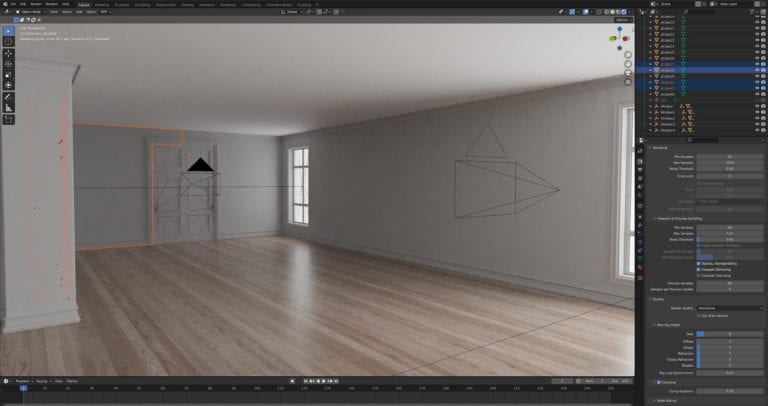
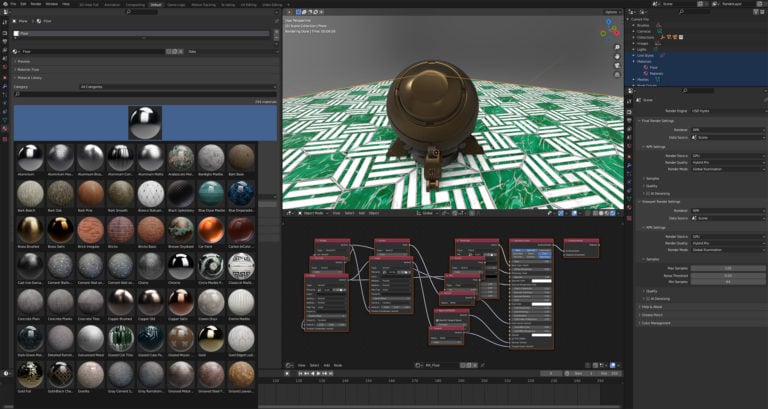
Similarly, Autodesk® has great USD tools working in Maya. They have integrated a Hydra rendering system, so any USD data can be rendered within Maya already. We have created a plug-in that allows using this system and rendering with Radeon ProRender’s existing Hydra delegate right within Maya! Our “classic” plug-in for Maya has also been updated with some maintenance fixes.
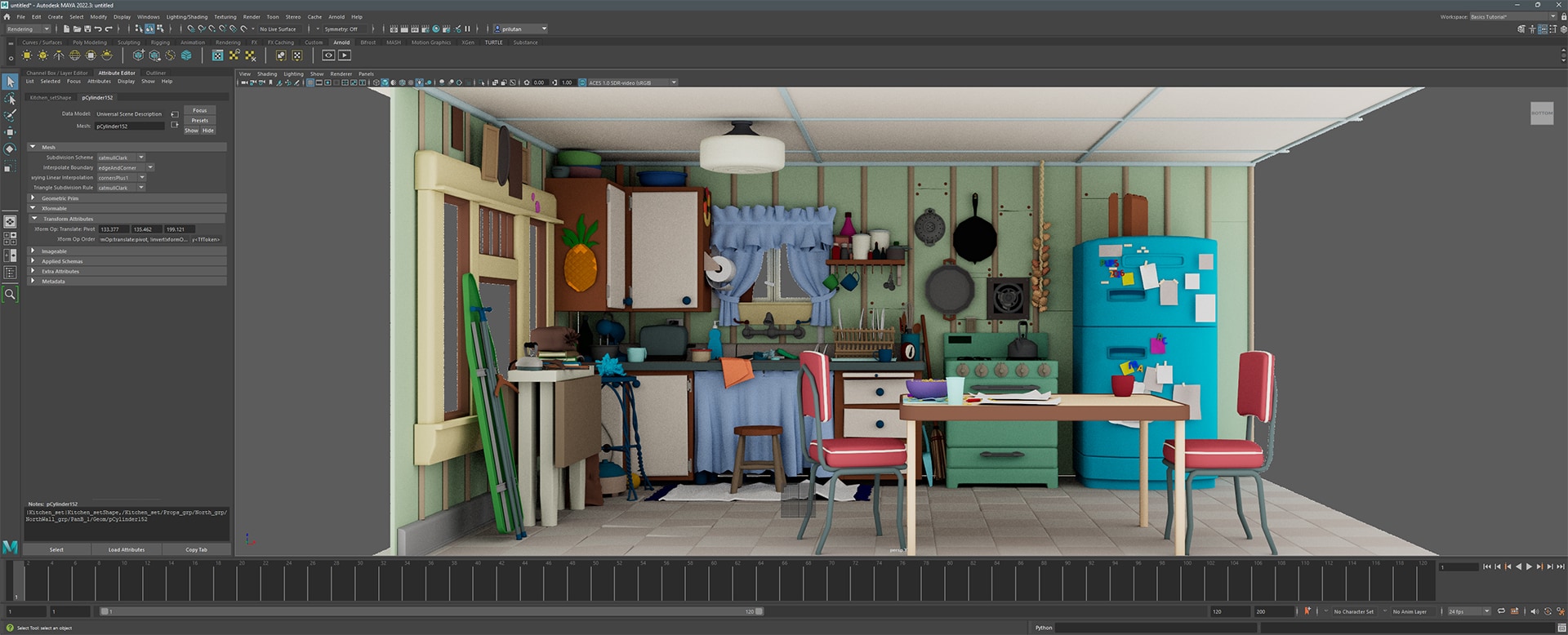
SideFX® Houdini™ has supported USD natively since version 18 with its Solaris system. Recently, Houdini 19 with MaterialX support was released. Our latest update supports this system and allows users to use their MaterialX materials with the Radeon ProRender plug-in.
Pixar’s USD system is notably open-ended and helpful in collaborating on 3D data. However, it is fairly agnostic about materials. Renderers inside USD can specify their materials, but there is no common denominator to create materials and render in many different ways. MaterialX is a format intended to fill that gap. Developed originally at Industrial Light and Magic (ILM), it has seen rapid adoption as an open format. The OpenGL® renderer (hdStorm), built-in to USD, supports it.
We now fully support all standard MaterialX nodes in Radeon ProRender. Also, we are launching a free, permissively licensed MaterialX-based Material Library at matlib.gpuopen.com. All of our USD-based plug-ins will allow on-demand downloading of materials from this library, and users are encouraged to contribute their own.
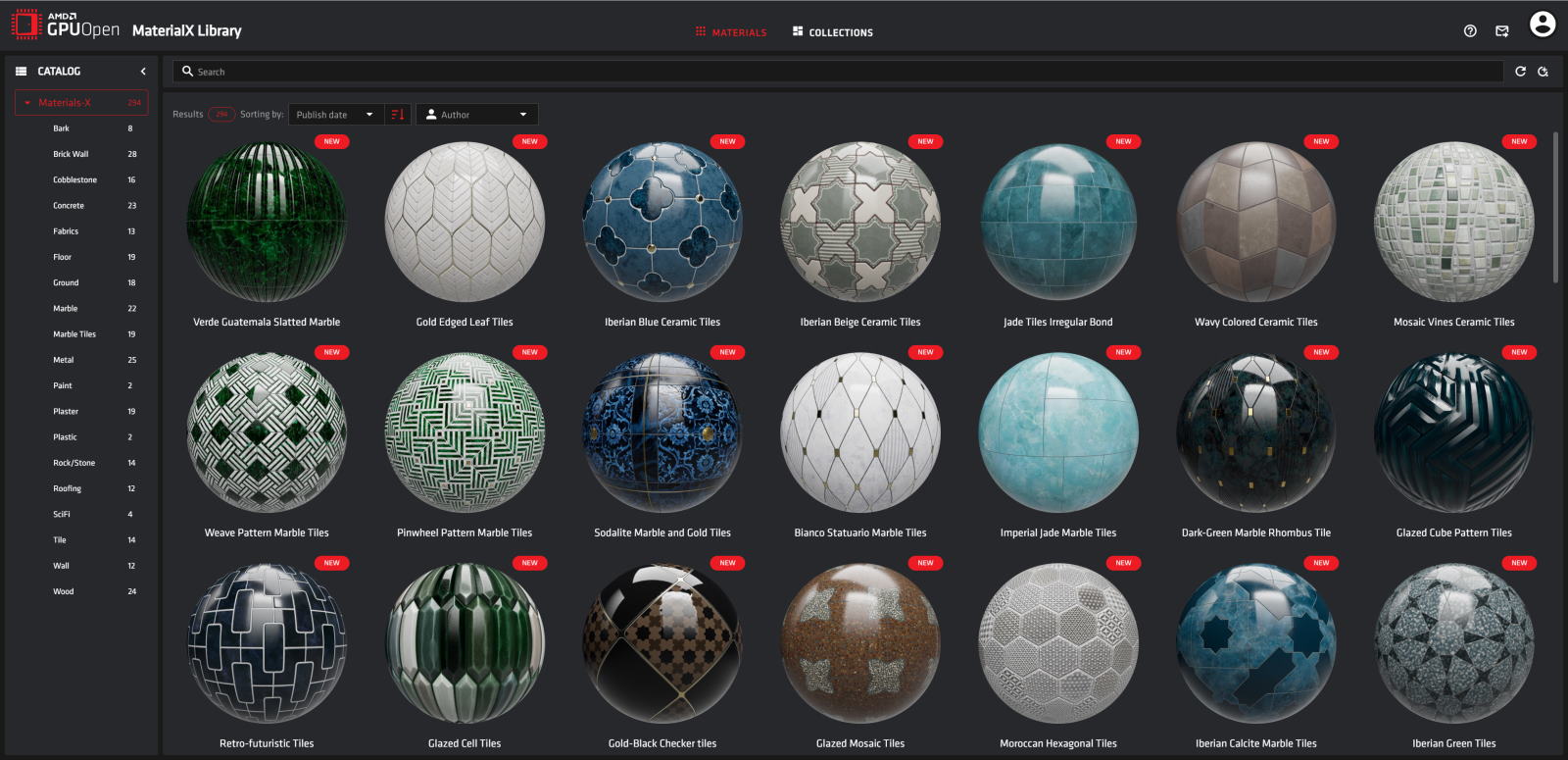
Visit our free MaterialX-based library
Finally, our USD-based Radeon ProRender plug-ins are having their render modes renamed and updated.
Both of these render modes support MaterialX. For more information on these changes to the Radeon ProRender backends see our latest RPR SDK update blog.
AMD is excited about the future support of MaterialX and USD with Radeon ProRender. Helping software vendors enable first-class rendering of USD data is our priority, and this is a workflow that will benefit users with more collaboration. Further, although the “classic” Maya and Blender plug-ins will not receive new features, they will be maintained for bug fixes.
Thank you for a great year, and we look forward to rendering together in 2022!
Download the Radeon ProRender for Blender USD plug-in v1.0
Download the Radeon ProRender for Maya USD plug-in beta
Download the Radeon ProRender for Houdini plug-in v2.2
Download the Radeon ProRender for Blender “classic” plug-in v3.3
Download the Radeon ProRender for Maya “classic” plug-in v3.3
Attributions
© 2021 Advanced Micro Devices, Inc. All rights reserved. AMD, the AMD Arrow logo, Radeon, and combinations thereof are trademarks of Advanced Micro Devices, Inc. Autodesk, Inventor, and Maya are registered trademarks or trademarks of Autodesk, Inc., and/or its subsidiaries and/or affiliates in the USA and/or other countries. Blender is a registered trademark of the Blender Foundation in EU and USA. Houdini and SideFX are registered trademarks or trademarks of Side Effects Software Inc. registered in the USA and other countries. Industrial Light & Magic and ILM are registered service marks or service marks of Lucasfilm Ltd. Linux is the registered trademark of Linus Torvalds in the U.S. and other countries. OpenGL® and the oval logo are trademarks or registered trademarks of Hewlett Packard Enterprise in the United States and/or other countries worldwide. Windows is a registered trademark of Microsoft Corporation in the United States and/or other jurisdictions. Pixar is a trademark and brand of Disney Enterprises, Inc. USD and Hydra are trademarks of Pixar Animation Studios. Vulkan is a registered trademark of Khronos Group Inc. Other product names used in this publication are for identification purposes only and may be trademarks of their respective companies.